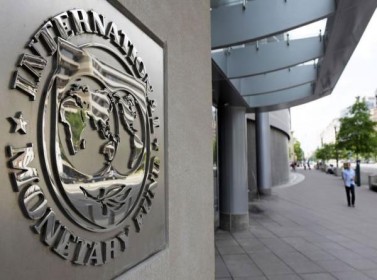Publisher: Maaal International Media Company
License: 465734
IMF: Global economy shows flexibility, but faces difficulties
International Monetary Fund on Tuesday lowered its growth forecasts for China and the euro zone and said that global growth as a whole remains low and uneven despite what it described as “remarkable strength” of the US economy.
In its latest outlook for the global economy, the Fund kept its forecast for global real GDP growth in 2023 unchanged at 3%, but reduced the forecast for 2024 to 2.9% from 3% in July. He said that global output grew by 3.5% in 2022
According to Reuters, the chief economist at the International Monetary Fund, Pierre-Olivier Gorinchas, said that the global economy continues to recover from Covid-19, the Russian invasion of Ukraine, and the energy crisis witnessed last year, but the divergent growth trends mean “modest” prospects in the medium term. .
اقرأ المزيد
Gorinchas said that expectations generally indicate an acceptable slowdown in growth compared to inflation and unemployment, but the International Monetary Fund remains concerned about the risks associated with the real estate crisis in China, the volatility of commodity prices, geopolitical fragmentation, and the return of high inflation.
The ongoing Israeli-Palestinian conflict also posed a new threat when officials from 190 countries gathered in Marrakesh to attend the annual meetings of the International Monetary Fund and the World Bank, but it came after the close of the quarterly update of the International Monetary Fund’s forecasts on September 26.
Gorinchas said that it is too early to determine the extent of the impact of this major escalation on the global economy, “depending on the shape of the situation that is still in the process of formation, there are many very different scenarios that we have not yet begun to explore, so we cannot make any assessment at this stage.”
He added that the International Monetary Fund is monitoring the situation, noting that oil prices rose by about four percent in the past days, which reflects fears that oil production or transportation may stop.
He said that research by the International Monetary Fund showed that a ten percent increase in oil prices would reduce global output by about 0.2 percent in the following year and increase global inflation by about 0.4 percent.
The International Monetary Fund said that factors such as the continuing impact of the pandemic, the Ukrainian war, increasing fragmentation, along with high interest rates, extreme weather events, and shrinking financial support are hampering stronger growth. Total global output in 2023 is expected to reach approximately $3.6 trillion, which is lower than expectations before the pandemic.
“The global economy is showing resilience,” Gorinchas said in an interview. It was not defeated by a knockout due to the major shocks it was exposed to in the past two or three years, but it is not in a very good position either… We see a global economy faltering, and it has not yet taken off very quickly.”
He also said during a press conference that the medium-term outlook is “gloomier,” especially for emerging economies that face a slowdown in catching up to levels and more debt concerns.
Even in 2028, the International Monetary Fund expects global growth of only 3.1%.
“There is uncertainty,” Gorinchas said. There is geographic economic fragmentation, low productivity growth, and weak population statistics. “If we put all these things together, we will find a slowdown in growth in the medium term.”








